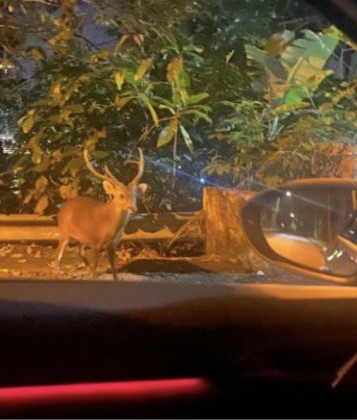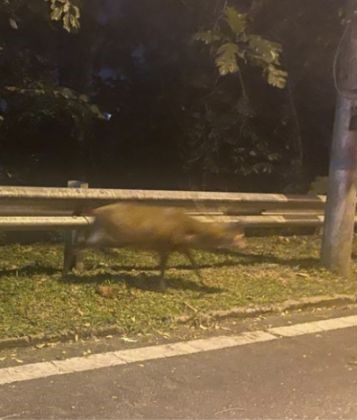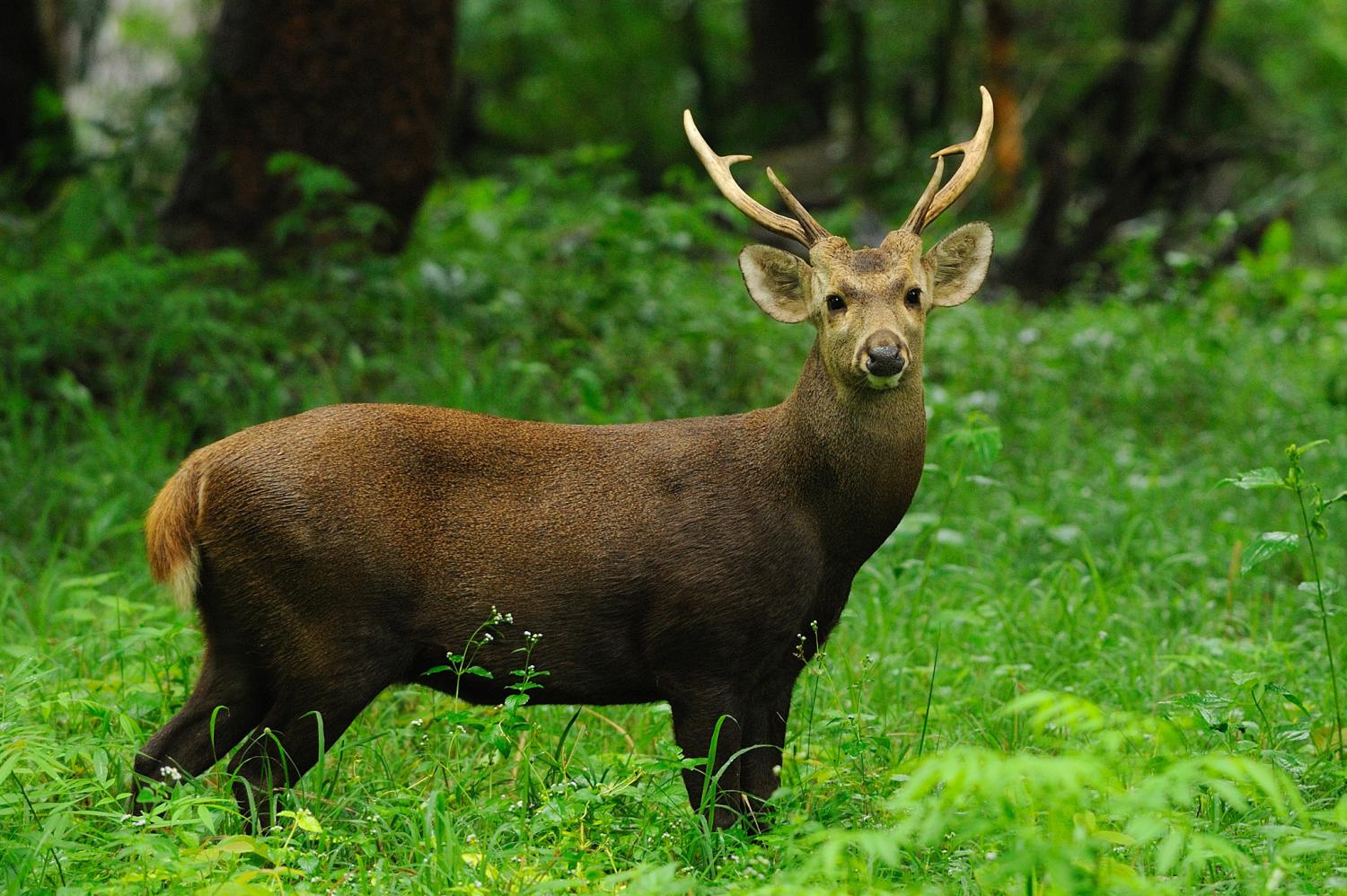Deer Escapes From Zoo Negara & Is Currently At Large In KL Neighbourhood
Oh deer.
A hog deer has reportedly escaped from Zoo Negara on Thursday, 16 February, and has been at large ever since
According to The Vibes, the runaway animal was spotted roaming the Jalan K5 Taman Melawati area as well as the Riverview Kemensah riverside in Kuala Lumpur.
A search party has since been launched to track the male deer, however, attempts to bring it back have remained unsuccessful.
"This deer is from a group of deer that are allowed to roam freely within the zoo open area. However, it is believed that this deer had found an exit hole through the river stream that leads out from the zoo," said Zoo Negara public relations officer Solihatun Shahidah Othman.
Authorities were notified of the deer's disappearance when residents of Taman Melawati Phase 6 spotted the animal in their neighbourhood on Saturday, 18 February
Many were shocked to learn a zoo animal had managed to enter the residential area, as Zoo Negara and the neighbourhood are separated by a 10-foot wall.
"This is the first time that I've heard of a deer escaping into our neighbourhood," Taman Melawati Phase 6 Rukun Tetangga chairman Baharuddin Osman said.
"We will be on the lookout, and we will inform Zoo Negara and the authorities as soon as possible if we come across the animal," he added.
Solihatun has urged the public to come forward with any information about the animal and to contact zoo authorities at 016-9162359 if they spot it.
The Indian hog deer (axis porcinus) is a herbivorous animal, that is native to South Asia and Southeast Asia
While hog deers have been recorded to form small herds, they are generally solitary animals. They are also nocturnal animals and are most active at night.
Although they are herbivores and prefer to flee from potential danger, if you encounter the runaway male hog deer or any in the wild, do not approach the animal.
Male hog deers are highly territorial creatures and have sharp horns on their heads which can be used to defend themselves. Therefore, stay away from them and contact wildlife authorities immediately.


